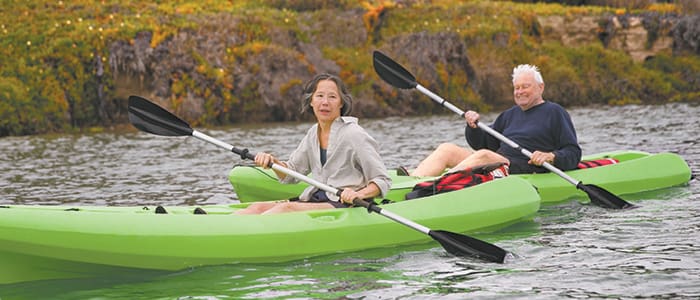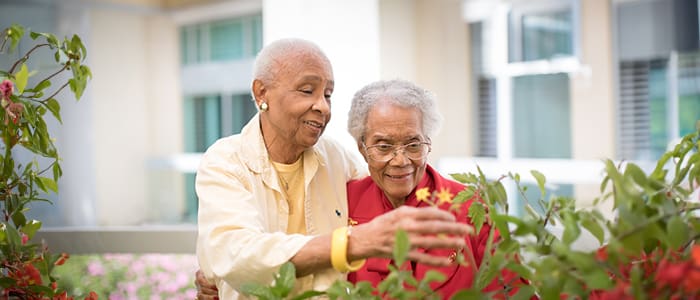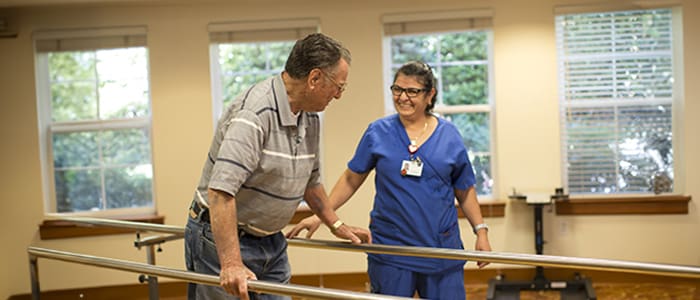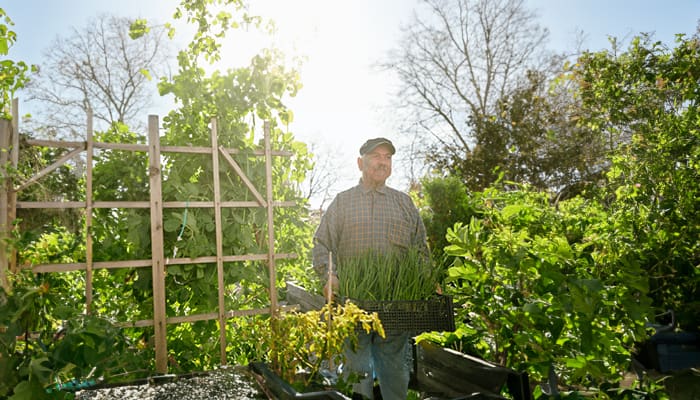September 23, 2019
Knowing Yourself Is The #1 Tip for Fall Prevention
September 23rd marks not only the first day of fall but also Falls Prevention Awareness Day, a day dedicated to raising awareness of falls and how to prevent them.
While adults 65 and older are at an elevated risk for falls, these are not a natural part of aging and many falls can be prevented. It is especially important to prevent falls because they pose a significant threat to the health and independence of older adults, including causing serious injuries like a traumatic brain injury or hip fracture as well as being a major cause of unintentional death. Even if a fall does not cause an injury, it can trigger a fear of falling that can result in cutting down on everyday activities and becoming weaker.
The good news is that there are a lot of easy ways to prevent falls and cut down on the anxiety surrounding a fall. Joanie Bowes-Warren, Sr. Director of Quality and Care, notes that the first step to reduce falls is to “be proactive versus reactive.” Here are some tips on how to be proactive and reduce the chance of a fall.
Exercise for Balance and Fall Prevention
One easy way to prevent a fall is to improve balance. Balance exercises are easy to learn and practice at home and many are available on the Go4Life website. Practicing balance exercises not only helps reduce the possibility of a fall, it can also reduce anxiety by being proactive about any balance issues.
Another great option is to join or start a fall prevention program. These programs are dedicated to providing fall prevention information while also raising awareness.
Talk to Your Doctor
Doctors are a great resource to prevent falls. Bowes-Warren notes that “doctors and medical professionals should look over your medications regularly to make sure that they aren’t a contributing factor.” It’s important to pay particular attention to opioid painkillers, tranquilizers, antidepressants, and sedatives.
Doctors can also help by performing annual vision tests, checking for foot pain and proper footwear, and being a great source of knowledge on what other changes can prevent falls. If necessary, they can also assist in finding the correct walking aid.
Make Your Home Safe
Preventing falls in the home can be as easy as making sure that floor space is clear and rooms are well lit. A cluttered floor increases the possibility of tripping and falling, so be sure to clear the floor and arrange furniture so there is plenty of room for walking.
Railings and grab bars can ease movement up and down the stairs as well as making it easier to move in and out of a bathtub or shower. Good lighting makes navigation easier and is especially important on stairs and in hallways. Even when at home, it can be helpful to use a cane or walker to ensure stability. It is also important to put essential items where they are easy to reach since straining for something that is out of reach can easily tip one off balance.
Make Smart Choices
A number of falls can be prevented by taking the time to make smart choices. “Be cognizant that there are a lot of fall hazards and make sure to look at your surroundings and make sure that it is safe” says Bowes-Warren.
One of the easiest ways to prevent a fall is to take some time before standing to make sure that your feet are under you and that you are not light headed. Giving yourself the opportunity to make sure that you are ready before you stand up can both reduce anxiety and the likelihood of a fall.
If there are any tasks that require climbing a ladder or stepladder, ask for help. One resource is the Rotary Home Team, which schedules volunteers from local Rotary clubs to do minor home repairs such as changing lightbulbs, smoke alarm batteries, or other tasks.
Finally, be aware of how alcohol’s effect is different depending on age and steer away from drinking alcohol to excess.
Know Yourself
As Bowes-Warren notes “you have to know yourself.” Being aware of personal abilities and limitations is crucial to making the right adjustments to prevent a fall. These steps are a great starting point but it is important to consider them in respect to your personal situation to decide what is relevant and will provide the most help.
Download a handout of tips and resources here.






